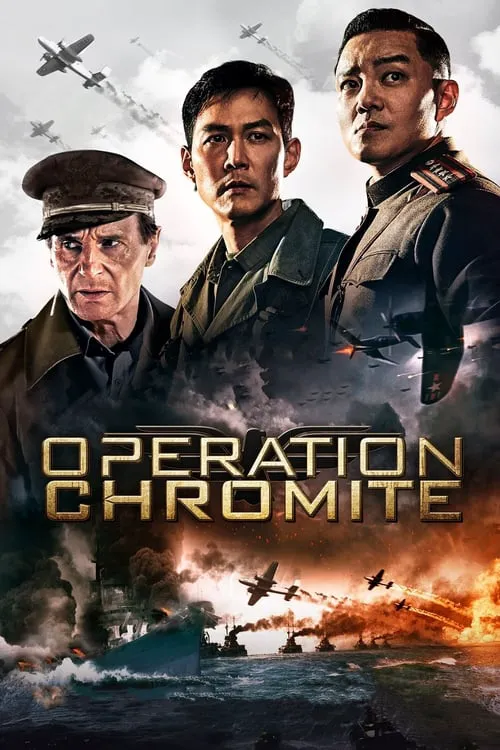Operation Chromite

Plot
Operation Chromite is a 2016 South Korean war film directed by John H. Lee, based on the real-life events of the Battle of Incheon during the Korean War. The film focuses on the bravery and selflessness of the soldiers who fought on behalf of the United Nations' forces, specifically the United States, in their efforts to liberate the strategic port city of Incheon from the clutches of the North Korean army. The story begins with General Douglas MacArthur, the commander-in-chief of the United Nations Command, deciding to launch a massive amphibious assault on the North Korean-held city of Incheon in the hopes of opening a new front and relieving the besieged city of Seoul. After months of stalemate, MacArthur believes that the time has come to take the initiative and launch a bold operation to retake the city and push the North Koreans back. Lieutenant General Walton Walker, the commander of the Eighth United States Army, is instructed by MacArthur to lead the assault. The operation, code-named 'Chromite,' is a complex and ambitious endeavor that will require the coordination of thousands of troops, hundreds of ships, and an intricate logistical system. Walker and his staff pour over maps and plans, fine-tuning every detail in preparation for the big push. Meanwhile, a small group of elite Korean Marine Corps officers, led by Lieutenant Colonel Kim Seung-hyo, are tasked with gathering intelligence on enemy positions and conducting reconnaissance on the beachhead. These brave soldiers risk everything to gather vital information that will aid the landing force, often finding themselves at the mercy of their North Korean enemies. As the invasion force approaches the coast, tensions rise. Walker and his men know that the success of the operation is far from guaranteed, and that they will face fierce resistance from the North Koreans. MacArthur's gamble requires Walker to be bold and decisive, as the fate of the entire campaign hangs in the balance. Operation Chromite begins with the landing at Wolmido, a small island off the coast of Incheon. The first wave of troops, comprising the United States Marines and Army infantry, hit the beach under withering fire, their landing craft taking heavy damage. Despite the chaos, the landing force presses on, securing a foothold on the island and clearing a path for the follow-up assault waves. As the battle rages on, the North Koreans launch a series of devastating counterattacks, which are valiantly repelled by the United Nations forces. The city of Incheon lies between two rivers, the Han and the Bukhan, which creates ideal conditions for a battle. The North Koreans have heavily fortified the city, placing them at an advantage. In an effort to secure the city, Walker orders a simultaneous attack on both rivers. Lieutenant Colonel Kim and his team embark on a perilous mission to clear the enemy-held bridgehead at Ganghwa Island, allowing the main force to cross the rivers and establish a solid foothold on the city's outskirts. The mission is a success, but not without loss: many lives are lost, including several key officers and men. As the battle reaches its climax, the United Nations forces push forward, clearing key objectives and gradually gaining ground. Walker's bold leadership earns him the respect of his troops, who begin to see the campaign as a triumph of determination over seemingly insurmountable odds. The film culminates with the capture of the strategic harbor at Incheon, which marks a decisive turning point in the war. The victory is a testament to Walker's strategic genius and the bravery of the soldiers who carried out the operation. Operation Chromite takes viewers on a gripping and intense journey, putting them in the shoes of the soldiers who fought in one of the most pivotal battles of the Korean War. By depicting the sacrifices, bravery, and camaraderie of the troops who risked their lives for their country, the film offers a powerful tribute to the spirit of the soldiers who gave their lives for the freedom of the city and the country.
Reviews
Recommendations




